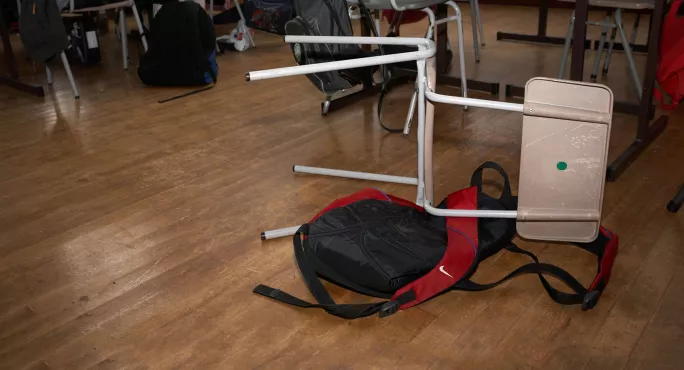A while back, a colleague, who was a very successful headteacher, was telling me how he’d brought in a marking-free week each term as a contribution to staff wellbeing.
I’m sure it was well received, but my instinctive response was that, if any aspect of a school’s workload required a week every term to be free of it, then I would prefer to make the other 12 weeks of each term manageable for the staff, making marking-free weeks unnecessary.
School leaders often take a similar approach when trying to improve behaviour, focusing intensely for a period of time, sometimes on a particular aspect - such as punctuality or homework completion - or on behaviour in general.
Zero tolerance
In my first few years working in a comprehensive, it was not uncommon for us to hear in the staff briefing that we were going to “go zero tolerance” (the headteacher’s words, not mine) on uniform for the next week. I’ve written elsewhere about how that worked in practice.
I worry that this approach of hyper-vigilance for a short period of time and then seeming relaxation is less effective in improving behaviour than we might think.
I do understand the reasoning. These blitzes come about for one of two reasons: either standards have dropped markedly and leaders decide that a crackdown (one of my least favourite words) for a week will bring standards up to an acceptable level and then they will be maintained. This idea is, I suspect, wishful thinking.
Or it is a planned strategy that happens once a term, say, in order to provide a jolt to the school community, even if things are good, as they help to avoid deterioration in the first place.
The yo-yo effect
My main concern is that it has the potential to create conditions for behaviour to yo-yo in the same way that crash dieting leads to initial weight loss but is not sustained and doesn’t result in lasting changes in eating behaviours.
Something that was generally accepted or overlooked suddenly becomes a massive deal one week and then reverts back again to mattering less for the rest of the term. The staff in the school may not see it that way but the children might.
In that comprehensive I worked in, there seemed to be an unhealthy obsession with having top buttons done up - something I found it very difficult to get excited about. They were important, apparently, one week, but not the next.
The students know this in precisely the same way that they know in which classes and in what parts of the school they are more likely to be able to use their phone because they’ve assessed the odds of its being confiscated.
The C word
Blitzes also fall foul of the all-important C-word: consistency. Although I advocate actions consistent with the values of the school, as opposed to consistency of action each time, I agree in this instance that it does create problems, especially for those students who find it hardest to behave well at school.
Last, and this is not unimportant, these crackdowns are exhausting for teachers as they can dominate many of your interactions with children in that week, often negatively.
Let’s go back to my colleague’s marking-free weeks. It begs the question, “what’s so special about marking this week compared to any other?”. This applies equally to behaviour standards. Are punctuality, kindness, courtesy, uniform, language, homework completion or anything else any more important this week than last? Clearly not.
Far better to take an even approach to improving behaviour, which sees improvements secured gradually and then sustained over time, as habit, so that they become “the way we do things round here”.
